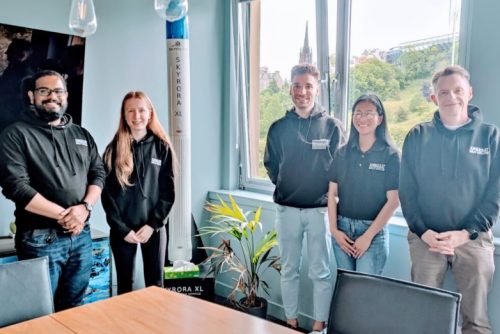Lift off for satellite start-up as it secures European backing

A Northallerton-based space satellite start-up business has received backing from the European Space Agency (ESA).
AmbaSat, which is located in the town’s Centre for Digital Innovation (C4DI), has been accepted on to the ESA Business Incubation Centre UK (ESA BIC UK) programme, bringing with it a €50,000/£43,000 cash injection and access to experienced scientists, engineers and testing facilities.
AmbaSat has also received a £3,250 grant from the Sustainable Supply Chain Network to help fund its Orbital Operator licence from the UK Space Agency and Civil Aviation Authority.
Together they complete the final piece of co-founders Martin Platt and Marcel Houtveen’s dream to give every individual, student, engineer and explorer the opportunity to build and launch their own satellite into space.
Platt said: “This is fantastic news for AmbaSat and enables us to deliver on the next phase of the business by launching UK satellites, built by UK students into low earth orbit onboard UK rockets.
“Being a member of C4DI has already brought us a powerhouse of support and inspiration – the business is driving forward so fast now and the opportunity to work with the ESA will help us to explore sustainability and environmental challenges and build new solutions through the use of space technologies.
“Having the support of Hambleton District Council to obtain grant funding for our satellite operator licence means we can take another big step forward in the journey to space and Low Earth Orbit.”
Ambasat was born out of Platt and Houtveen’s environmental, business and technology expertise.
They spent five years developing and manufacturing a new technology to provide remote sensing, monitoring and alerting systems for industrial and commercial food businesses.
In 2019, they developed the first miniature space satellite called AmbaSat-1.
This tiny space satellite kit is assembled and coded by students and individuals and then launched on-board a commercial rocket into Low Earth Orbit, where it spends up to one month in space, conducting data gathering activities covering everything from CO2 emissions and radiation to GPS location data.








